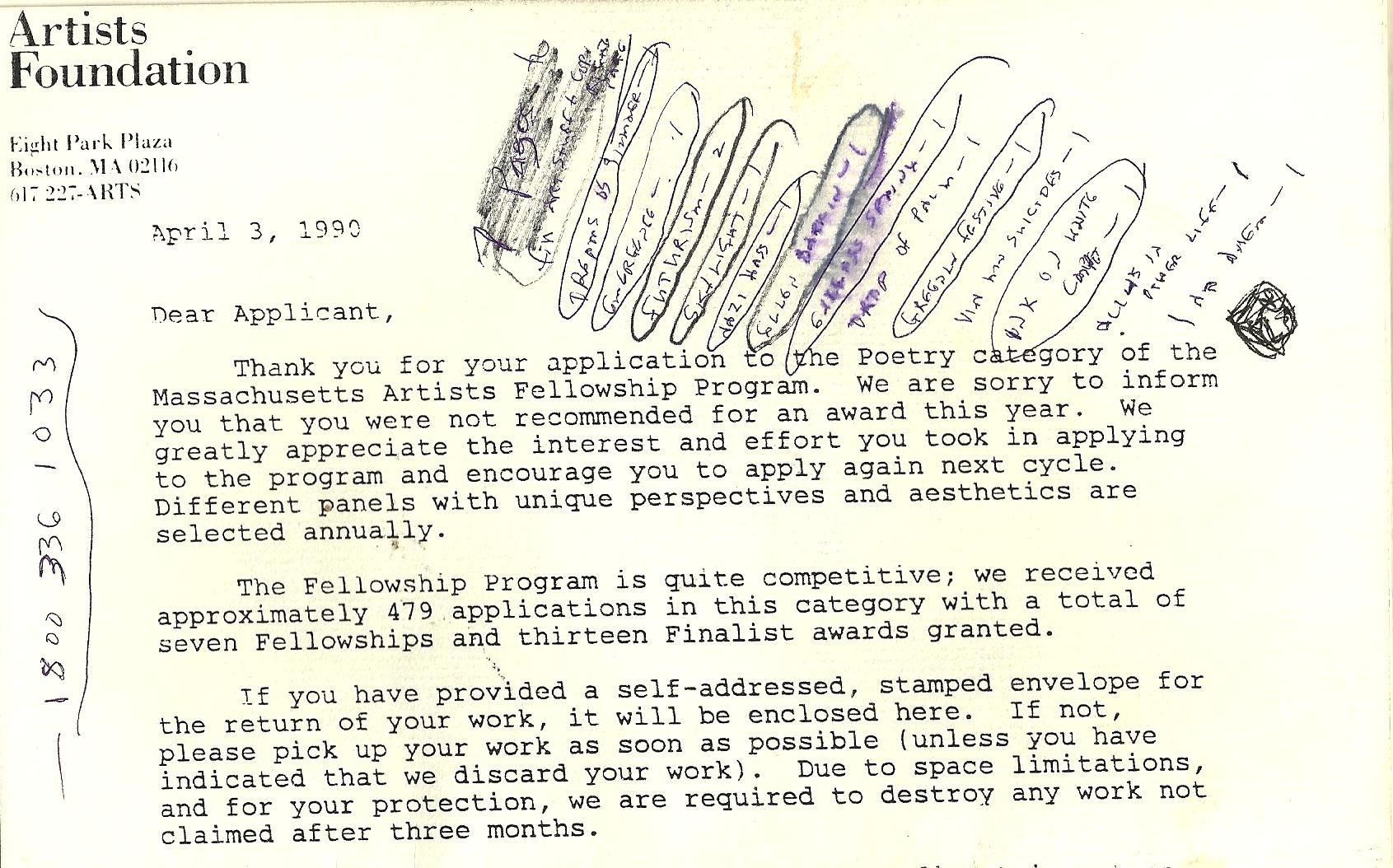Jizz street
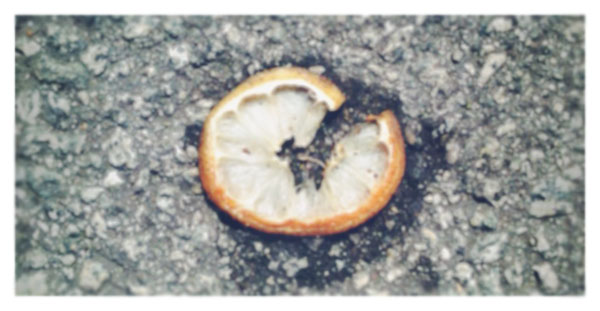
When I see, and it is often, a used condom on the street, I bend down hoping there’s a money shot inside. I don’t think I’m a perv, or gross; it’s just how brains work. You go to college, you want a job. You do crunches, you want sick abs. You see a rubber, you wanna see spunk. A money shot, by definition of it being seen, is a precluded you. When I see any circular thing on the street, like from the other side, I’m drawn towards it, crossing the road without looking both or either way, hoping it’s a condom. I understand not everyone does this, I am sorry. A similar thing happens when I see panties on the street, though that is sadder, because a girl out there is not doing so well. A properly employed condom, this is turning into an essay, represents two responsible people who wanted to feel each other somewhat, and the narrative, this is turning into fiction, is that the ejaculator for some reason feels compelled to walk into the street and snap off the condom, the orange light from the lamp above turning the money into sunny delight. And he lets it flop to the pavement for guys like me to see the next day and think this could be a post. The brightest thing in our universe is conceptual, a circle filled with sun color that goes in the upper right corner of a child’s drawing, its crooked rays as javelins to the face. I want my days to be a gigantic moving child’s drawing, each shape inaccurately drawn by tiny hands and without judgement. I put a circle in the middle of today, now I fill it in with sunset pink and bisect it by a horizontal line that stands for the edge of this world. I want a cocktail mistake to be the sun, the sun to be a condom, and the condom to be jizzed. I want us all to jizz without ever jizzing, which may be Buddhist or something, or just happy.
“Intercourse with Resuscitated Wife” by Ben Marcus
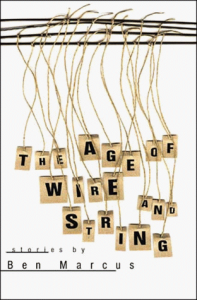 I read Notable American Women before I read The Age of Wire and String, so despite my being somewhat familiar with Marcus and his interviews and his writing, I still wasn’t quite prepared for the kind of ‘language monsters’ he had packed into those 140 pages when I opened the book for the first time in the summer of 2006.
I read Notable American Women before I read The Age of Wire and String, so despite my being somewhat familiar with Marcus and his interviews and his writing, I still wasn’t quite prepared for the kind of ‘language monsters’ he had packed into those 140 pages when I opened the book for the first time in the summer of 2006.
And although the book begins with a sort of prologue, or ‘argument,’ which describes the book as a ‘life project’ meant to catalogue the age of wire and string, I will always think of the opening sentence of “Intercourse with Resuscitated Wife” as the warning shot, a language bunch that reoriented my understanding of how a parcel of words might be arranged in unusual ways.
The dropped articles, the potential comma splice, the archaic tone, the oddity described by the text, all of these I might have seen before, but never in such a sustained and tightly controlled way as this, and not in a contemporary landscape. And furthermore, I hadn’t yet become aware of many of the precursors who made such a collection possible. So to read this first sentence was a bit shocking for me, but in a good way, and helped me take greater care in my reading and writing from then on.
Intercourse with resuscitated wife for particular number of days, superstitious act designed to insure a safe operation of household machinery.
Playing catch up with the stacks
All around my desk, stacks of texts pile up until Beatrice (our mackerel tabby) knocks them down. Then I try to re-stack them. One stack should be material for review, one stack for fun, one stack for research projects, etc. This always never works. Stacks blend with other stacks to form new stacks. With my wife’s desk on the opposite wall in our study, her stacks always threaten to encroach on my stacks, our individual stacks blending to make ever more new mutant stacks. Our bookshelves are brimmed with books: no room remains anywhere there. I’d take a picture to show you the absurdity of it, but probably many of you have similarly absurd looking book situations.
At any rate, one of the stacks is stuff I’ve intended to write about here on htmlgiant, but for one reason or another, one prior commitment or another, I got sidetracked and failed to write about it like I should have or would have or wanted to, etc. Some of it I’ve read cover to cover, some of it I’ve taught to undergraduates, some of it I’ve still only flipped through. I’m sure some of the texts in the stack have moved to other stacks, so I’m probably gonna omit stuff, but at least here are a few of the things in that stack…
“Cold France” by Wythe Marschall
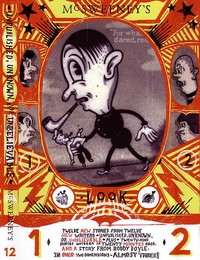 In 2003, McSweeney’s published issue 12, which consisted of 12 unpublished writers and some other stuff. A friend of mine made me buy this issue, and I remember talking with him about one story in particular. It’s the only story I remember from the issue: “Cold France” by Wythe Marschall. I read it on the floor of my bedroom at my parent’s house while home from college during some break or another. Since then, I have occasionally thought of “Cold France” and idly wondered whatever happened to Wythe Marschall. His bio in the contributors’ notes section said that he was nineteen at the time, and so he forever remains nineteen in my head, despite what Google just told me.
In 2003, McSweeney’s published issue 12, which consisted of 12 unpublished writers and some other stuff. A friend of mine made me buy this issue, and I remember talking with him about one story in particular. It’s the only story I remember from the issue: “Cold France” by Wythe Marschall. I read it on the floor of my bedroom at my parent’s house while home from college during some break or another. Since then, I have occasionally thought of “Cold France” and idly wondered whatever happened to Wythe Marschall. His bio in the contributors’ notes section said that he was nineteen at the time, and so he forever remains nineteen in my head, despite what Google just told me.
“Cold France” consists of seventeen short sections, each of which describes a different “permutation” of France. There is “Dog France,” “Whale France,” “Tent France,” “Sponge France,” and “Fat France.” I read that in “Merry France” one Frenchman “simply said ‘fox’ until all of Limoges had died from heart seizures” from laughing so hard. In “Dark France” a man questions his existence: “What is the meaning of darkness? thinks Jean. He wants to move to another country, but he cannot see what ticket to buy at the station. A badger walks into him in the woods when he is on vacation.” In “Slow France” I read “Because each follicle has so long to think over each new molecule of French hair, each French strand is shinier, stronger, and more fit to entertain at parties than other, foreign hairs. So when you get it in the mail, please remember: Whatever you do, don’t cut your French hair.”
Suggested Pairings: Etgar Keret and Kuhnhenn Blueberry Panty Dropper
The Girl on the Fridge by Etgar Karet has a blurb from Salman Rushdie on the cover which is major street cred with all of Rushdie’s hot ex-wives, leggy current girlfriends, not to mention the Rushdie sneer and the notorious fatwa, especially provocative in context, blurb on Israeli author’s book (this book translated from the Hebrew), book often about Arab/Israeli conflict, book often situations of paranoia, hidings, possible violence, also the cover a medical green/blue, but let’s return to contemporary Arab/Israeli situation possibly presented here as dreadfully fantastic, possibly absurdly horrific, possibly the hyperbole and horror of the prose/situation, warped looking glass, warped words, oh gods, just say it, OK possibly all Magical Realism, all creative counter-distortion, not here as detached, mystical, balloonish, Big Pictures KABAM!!, or/as magical at all/at all but or/as considered here by literary skill as true.
Kuhnhenn Blueberry Panty Dropper is one fruity beer. Those kind folks at Kuhnhenn Brewing Company used actual Michigan blueberries, I shit you not. This reminds me of a bar in Rhode Island where you can order beer with blueberries floating in the glass. Don’t do that. Only douches want fruit floating in their beer. So you want to start with the color? Fine, we’ll start with the color. Pours out a light pinkish purplish periwinkle saffron, with adjacent radiation regions of a dark European honey hue, flashes of chestnut and burgundy, coffee-like, Big Red in a glass. Oh, I’m fumbling a bit here. Not sure how to exactly pin down this hue. Have you ever seen the type of rust/blood stains a person will obtain on the fleshy parts of their palms while hand-drilling a water well (or even augering, sludging, or jetting)? Or like maybe the clouds of delicate almond petals you will see on windy days across the Island of Cyprus? Well, like that.
Kenneth Goldsmith and Michelle Obama to lead a poetry workshop for children

“An Evening of Poetry”
Event Continues Arts Education Series at the White House on May 11th
The President and Mrs. Obama will host a celebration of American poetry and prose by welcoming accomplished poets, musicians and artists as well as students from across the country to the White House next week. Participants include Elizabeth Alexander, Billy Collins, Common, Rita Dove, Kenneth Goldsmith, Alison Knowles, Aimee Mann and Jill Scott who will read, sing, and showcase the impact of poetry on American culture. The President will make opening remarks at this event held in the East Room, which will be pooled press and streamed live on www.whitehouse.gov starting at 7:00 p.m. ET.
Find out more over at Jacket 2. (Thanks to Kent Johnson for the tip!)
Bill Knott Week: Last Postings
Best Deal on the Internet:
James Wright on Bill Knott, from Wright’s collected letters:
September 6, 1975
D. Groth,
You kind letter made me happy. Poetry is a strange adventure: at crucial times it is––it has to be a search undertaken in absolute solitude, so we often find ourselves lost in loneliness––which is quite a different thing from solitude. America is so vast a country, and people who value the life of the spirit, and try their best to live such a life, certainly need times and places of uncluttered solitude all right. But after the journey into solitude––where so many funny and weird and sometimes startlingly beautiful things can happen, whether in language or––even more strangely––in the silences between words and even within words––we come into crowds of people, and chances are they are desperately lonely. Sometimes it takes us years––years, years!–to convey to another lonely person just what it was we might have been blessed and lucky enough to discover in our solitude.
In the meantime, though, the loneliness of the spirit can be real despair. A few years ago, when I lived in St. Paul, Minn., I received unexpectedly a short note from a young poet* who was bitterly poverty striken in Chicago. READ MORE >
Bill Knott Week: An Essay by Peter Jurmu
Some notes on Knott from Peter Jurmu:
When What You Really Really Want Is To Cover Territory
Sex on Quicksand: Collected Short Poems 1960-2009, like Breccia (or An Incomplete Inventory of Dorian Gray’s Closet—cover pictured above—that phone number is the request line for a Boston-area oldies station, WODS— READ MORE >


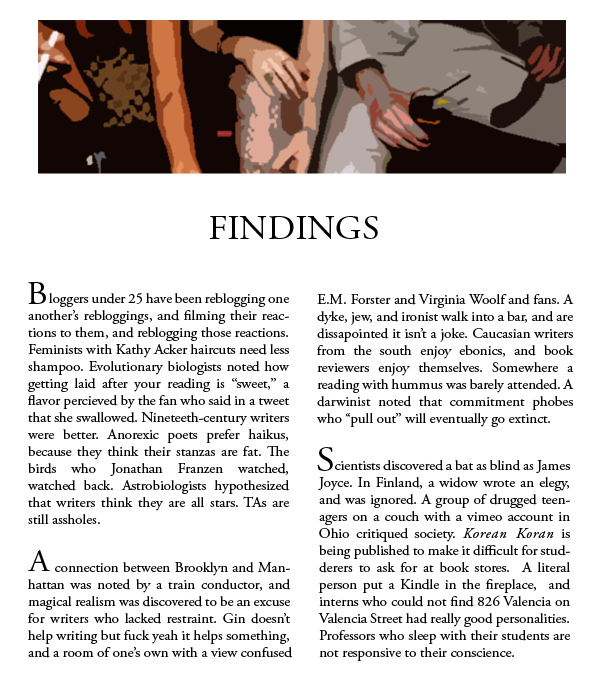
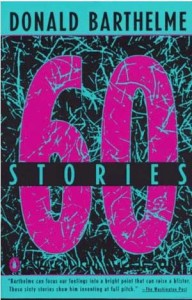 In college I went through a stage of searching for and printing off as many David Foster Wallace interviews as I could find. I remember printing of the
In college I went through a stage of searching for and printing off as many David Foster Wallace interviews as I could find. I remember printing of the 